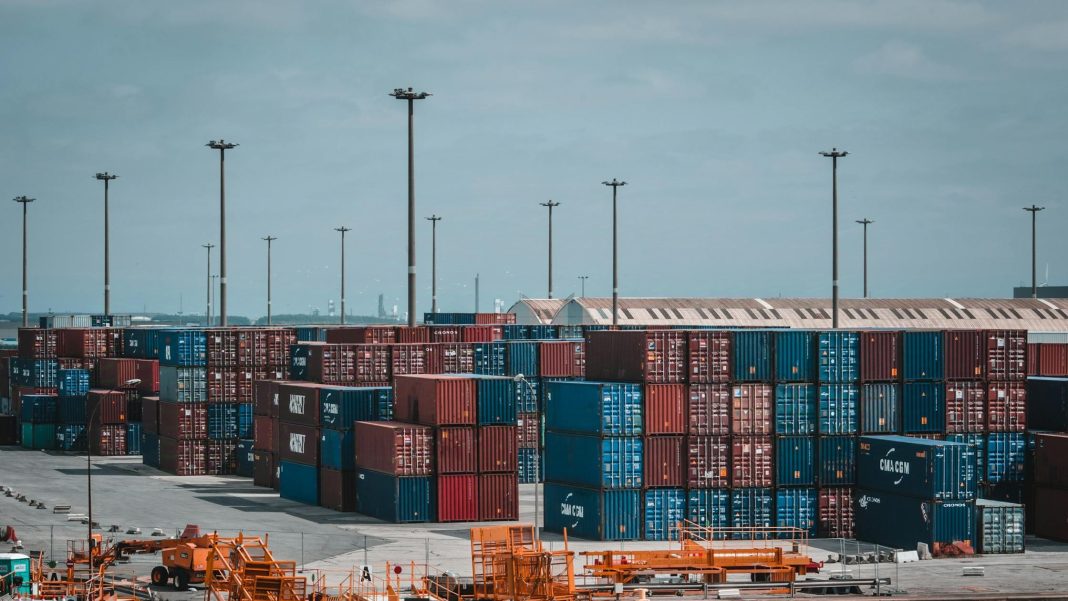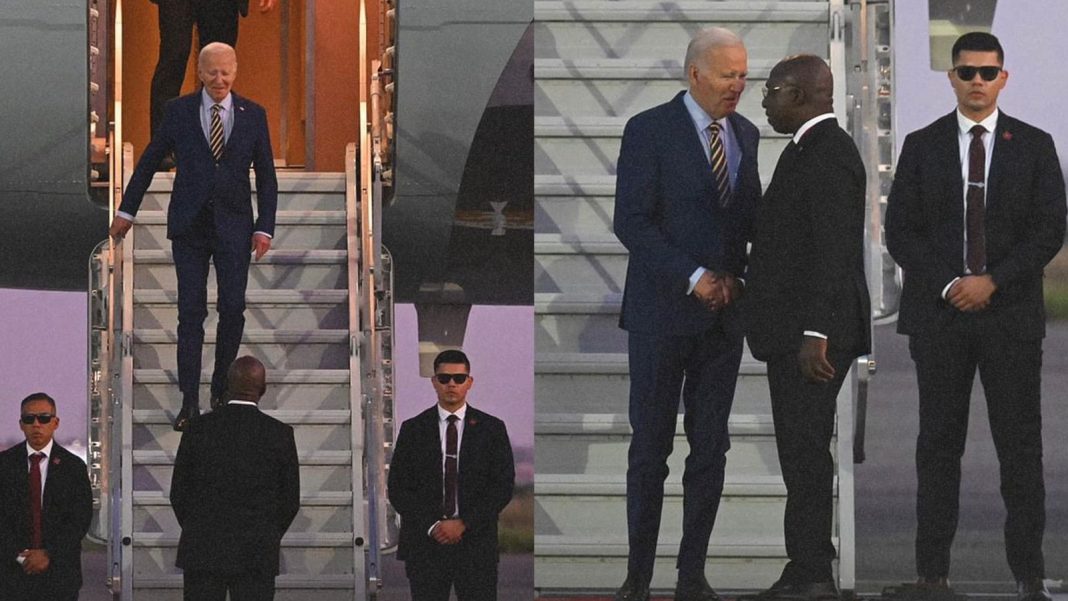As global trade continues to expand, Africa’s ports are emerging as vital gateways for commerce and connectivity.
The capacity of these ports, often measured in Twenty-foot Equivalent Units (TEUs), serves as a key indicator of their ability to handle containerized cargo efficiently.
In this article, WoA delves into the business ports across Africa, ranked by their TEU capacity, showcasing how these critical infrastructures facilitate trade.
1. Tanger Med
Tanger Med Port, inaugurated in 2007, has rapidly evolved into Africa’s largest port and is a key Mediterranean logistics hub.
In 2023, it processed 8,617,410 TEUs, reflecting a 13.4% increase from 2022 and achieving 95% of its nominal capacity, four years ahead of projections.
The port’s success is attributed to efficient terminal operations and strategic partnerships, notably with Maersk-APM and Tanger Alliance.
This growth positions Tanger Med as the 19th largest port globally, emphasizing its critical role in international trade and transshipment to Africa.
2. Port Said
Port Said, founded in 1859 during the Suez Canal’s construction, has a rich history marked by its cosmopolitan community and strategic location.
Initially a construction camp, it grew rapidly, becoming a vibrant port city by the late 19th century.
The city faced challenges during the Suez Crisis in 1956 but was later revitalized as a duty-free port in 1976, boosting its economy.
In 2023, Port Said’s container throughput reached approximately 1.8 million TEUs (Twenty-foot Equivalent Units), reflecting its ongoing significance in global trade.
3. Port of Durban
The Port of Durban, established in the late 19th century, has evolved into one of Sub-Saharan Africa’s busiest ports, crucial for logistics and trade.
It handled approximately 2.57 million TEUs in 2022, ranking 79th globally.
In 2023, operational challenges led to significant congestion, with around 4 million TEUs processed despite a 2.4% decline compared to previous years.
The port’s performance has been hampered by equipment issues and adverse weather, prompting initiatives to improve efficiency and capacity.
4. Lekki Deep Sea Port
Lekki Deep Sea Port, located in Nigeria’s Lagos Free Trade Zone, commenced full commercial operations on April 6, 2023.
This $1.5 billion project is Nigeria’s first deep sea port and aims to enhance trade capacity with an annual handling capability of 2.7 million TEUs (Twenty-Foot Equivalent Units).
The port features advanced infrastructure, including a 1,200m quay wall and facilities for liquid and dry bulk cargoes.
It is projected to handle approximately 400,000 TEUs annually, contributing significantly to Nigeria’s economy and positioning it as a key maritime hub in West Africa.
5. Port of Ngqura
The Port of Ngqura, located near Gqeberha, South Africa, opened in 2009 to alleviate congestion at other ports and serve as a transshipment hub.
It was developed as part of the Coega Industrial Development Zone, aiming to boost economic growth in the region.
The port’s design capacity is 2 million TEUs, with an installed capacity of 800,000 TEUs as of 2023.
In 2023, it handled approximately 619,614 TEUs, reflecting its role in regional trade despite challenges in operational efficiency.
6. Lomé
The Port of Lomé, established as a major transshipment hub in West Africa, has seen significant growth since its inception.
Initially developed in the late 2000s, it has expanded its capacity to handle larger vessels and increased its cargo volumes from 300,000 TEUs in 2013 to 1.9 million TEUs in 2023, reflecting a 5% increase from 2022.
In total, the port managed approximately 30 million tonnes of goods in 2023, with imports rising by 10.45%.
Its strategic location serves not only Togo but also landlocked countries like Mali and Niger, enhancing its regional importance.
7. Port of Abidjan
The Port of Abidjan, established in the late 19th century, has evolved into one of West Africa’s largest ports, crucial for Côte d’Ivoire’s economy.
Initially built to export cocoa and coffee, it has undergone significant expansions, notably with the completion of new container terminals in recent years.
In 2023, the port achieved a throughput of approximately 1.9 million TEUs, marking a 10% increase from the previous year.
Overall freight traffic surged by 21%, reaching 34.8 million tonnes, reflecting its growing importance in regional trade.
8. Port of Mombasa
The Port of Mombasa, established in the late 19th century, has evolved into East Africa’s premier maritime hub.
Historically significant for trade, it underwent major expansions, including the Mombasa Port Development Project, enhancing its capacity to over 2.1 million TEUs.
In 2023, the port handled approximately 1.6 million TEUs, reflecting a 12% increase from the previous year.
9. Port of Casablanca
The Port of Casablanca, established in the 1900s, has evolved into one of the largest artificial ports globally.
It serves as Morocco’s primary commercial port, handling diverse cargo including containers, vehicles, and bulk goods.
In 2023, the port processed approximately 1.3 million TEUs, reflecting a 19% increase from the previous year, driven by improved import/export activities and enhanced shipping services.
The port’s capacity allows it to accommodate around 35 ships simultaneously, contributing significantly to Morocco’s maritime trade
10. Port of Doraleh
The Port of Doraleh, inaugurated in May 2017, is a pivotal maritime facility in Djibouti, designed to enhance trade efficiency and capacity.
It features modern terminals for bulk, break, and container shipping, with a capacity to handle 1.6 million TEUs annually.
In 2023, the port processed approximately 1.6 million TEUs, reflecting its critical role in regional logistics despite a significant drop in global ranking to 379th in the World Bank’s Container Port Performance Index.
The port’s strategic location near the Bab Al Mandab Strait facilitates vital trade routes, particularly to landlocked Ethiopia.



